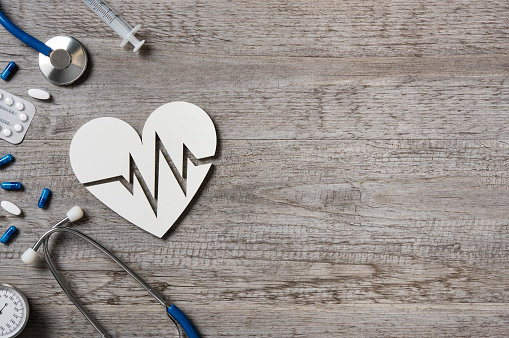When 53-year-old Kimberly Montgomery began sweating profusely and feeling nauseous after a hot yoga class, she thought nothing of it. Maybe she just needed to cool off from class. Maybe she ate something bad yesterday, or maybe it was just symptoms of menopause, she thought.
A friend convinced her to go to urgent care, where they quickly put her in an ambulance for the hospital. There, a surgeon told her he was going to do cardiac catheterization because she had just had a heart attack.Kimberly’s story isn’t unique, and that’s because for most women, heart attack and heart disease symptoms don’t present like they do in men — crushing chest pain, shortness of breath, arm pain.
The risk for heart disease and heart attacks in women increases after menopause. In fact, heart disease rates are two to three times higher in women who have undergone menopause than in those who have not, according to the National Institutes of Health. And heart disease is the leading cause of death for women and men.
Heart Disease in Women: Risk Factors
High cholesterol, obesity and high blood pressure can raise your risk for developing heart disease. But there are additional risk factors for developing heart disease like:
- Diabetes: Women who have diabetes are at a greater risk of developing heart disease than men who have diabetes.
- Depression or mental stress: If you’re having symptoms of depression or prolonged stress, talk to your doctor. That’s because depression or mental stress affects women’s hearts more than men’s.
- Menopause: The low levels of estrogen caused by menopause are a significant risk factor in developing cardiovascular disease.
Heart Disease in Women: Symptoms
Though many women experiencing a heart attack will report some degree of chest discomfort, it is often not the primary symptom they feel. Sometimes, women will feel chest discomfort for days and dismiss it as acid reflux or muscle strain.
Subtler symptoms can occur, such as:
Unusual fatigue
Watch if you are suddenly worn about by your normal exercise routine, if you feel like you have a “heavy chest” but aren’t exerting yourself, your everyday activity like shopping or making the bed makes you excessively tired, or you have sleep disturbance despite feeling exceptionally tired.
Sweating or shortness of breath
Watch out for:
- Sudden sweating or shortness of breath without exertion;
- Breathlessness that worsens over time;
- Shortness or breath that worsens when lying down but improves upon sitting up;
- Feeling excessively cold or clammy without a cause for stress;
- Sweating or shortness of breath accompanied by other symptoms.
Neck, jaw or back pain
Watch for pain in either arm, pain that starts in the chest and spreads to the upper or lower back, sudden pain that wakes you from sleep orpain to the left, lower side of your jaw.
If you experience any of the above symptoms, or any symptoms that could indicate a heart attack, call 911 Do not drive yourself to the hospital.
Knowing the signs of a heart attack can help you or a loved one get help sooner. You might even save a life.











